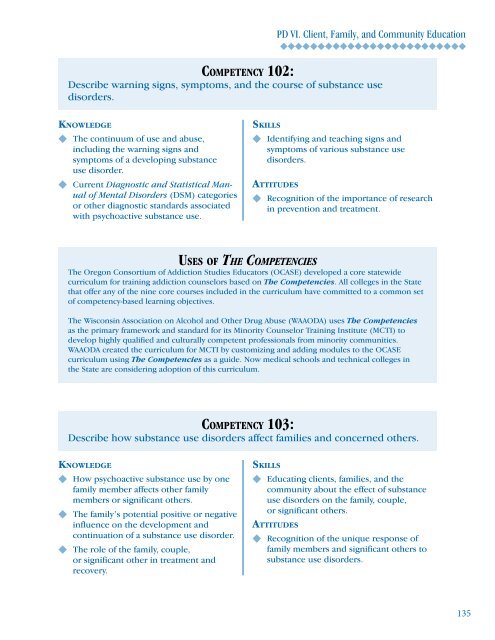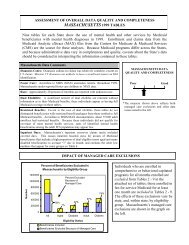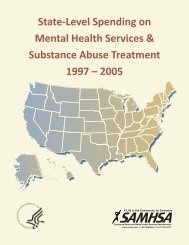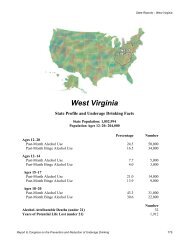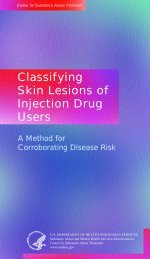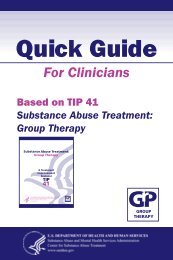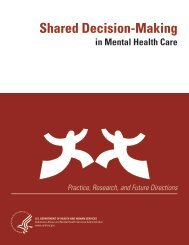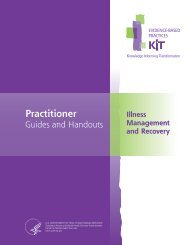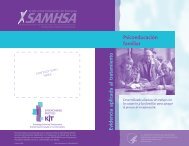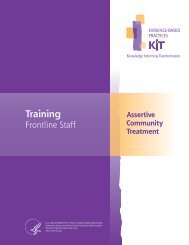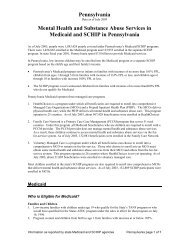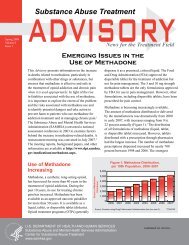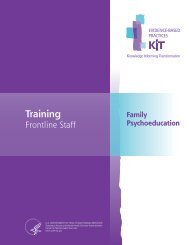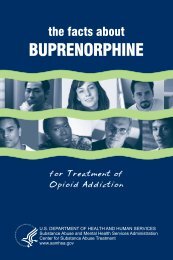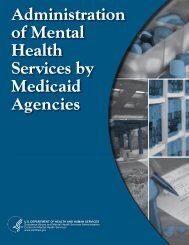TAP 21 - SAMHSA Store - Substance Abuse and Mental Health ...
TAP 21 - SAMHSA Store - Substance Abuse and Mental Health ...
TAP 21 - SAMHSA Store - Substance Abuse and Mental Health ...
You also want an ePaper? Increase the reach of your titles
YUMPU automatically turns print PDFs into web optimized ePapers that Google loves.
PD VI. Client, Family, <strong>and</strong> Community Education<br />
Competency 102:<br />
Describe warning signs, symptoms, <strong>and</strong> the course of substance use<br />
disorders.<br />
Knowledge<br />
XX<br />
The continuum of use <strong>and</strong> abuse,<br />
including the warning signs <strong>and</strong><br />
symptoms of a developing substance<br />
use disorder.<br />
uX Current Diagnostic <strong>and</strong> Statistical Manual<br />
of <strong>Mental</strong> Disorders (DSM) categories<br />
or other diagnostic st<strong>and</strong>ards associated<br />
with psychoactive substance use.<br />
Skills<br />
uX<br />
Identifying <strong>and</strong> teaching signs <strong>and</strong><br />
symptoms of various substance use<br />
disorders.<br />
Attitudes<br />
uX<br />
Recognition of the importance of research<br />
in prevention <strong>and</strong> treatment.<br />
Uses of The Competencies<br />
The Oregon Consortium of Addiction Studies Educators (OCASE) developed a core statewide<br />
curriculum for training addiction counselors based on The Competencies. All colleges in the State<br />
that offer any of the nine core courses included in the curriculum have committed to a common set<br />
of competency-based learning objectives.<br />
The Wisconsin Association on Alcohol <strong>and</strong> Other Drug <strong>Abuse</strong> (WAAODA) uses The Competencies<br />
as the primary framework <strong>and</strong> st<strong>and</strong>ard for its Minority Counselor Training Institute (MCTI) to<br />
develop highly qualified <strong>and</strong> culturally competent professionals from minority communities.<br />
WAAODA created the curriculum for MCTI by customizing <strong>and</strong> adding modules to the OCASE<br />
curriculum using The Competencies as a guide. Now medical schools <strong>and</strong> technical colleges in<br />
the State are considering adoption of this curriculum.<br />
Competency 103:<br />
Describe how substance use disorders affect families <strong>and</strong> concerned others.<br />
Knowledge<br />
uX How psychoactive substance use by one<br />
family member affects other family<br />
members or significant others.<br />
u The family’s potential positive or negative<br />
influence on the development <strong>and</strong><br />
continuation of a substance use disorder.<br />
u The role of the family, couple,<br />
or significant other in treatment <strong>and</strong><br />
recovery.<br />
Skills<br />
uX<br />
Educating clients, families, <strong>and</strong> the<br />
community about the effect of substance<br />
use disorders on the family, couple,<br />
or significant others.<br />
Attitudes<br />
uX<br />
Recognition of the unique response of<br />
family members <strong>and</strong> significant others to<br />
substance use disorders.<br />
135


